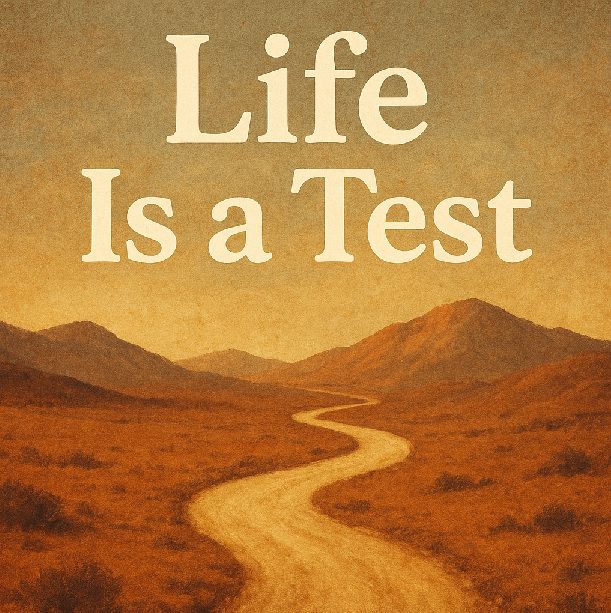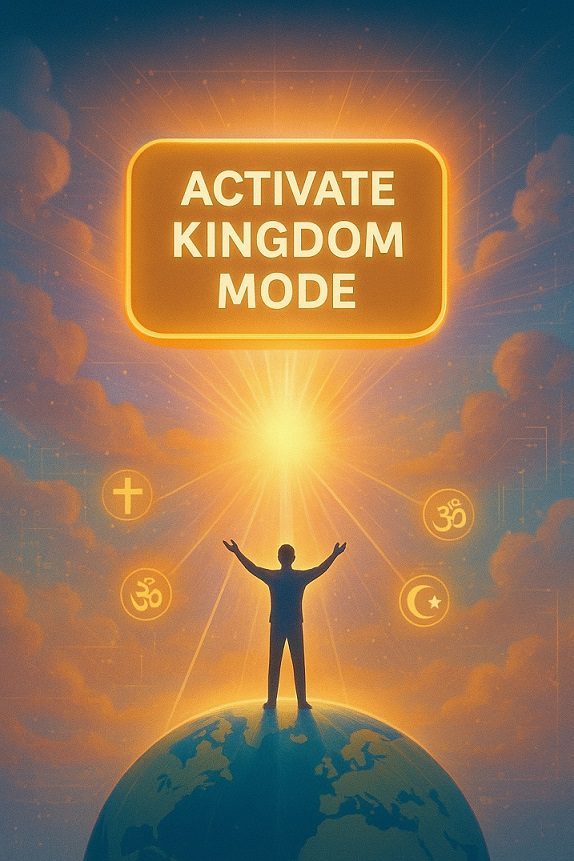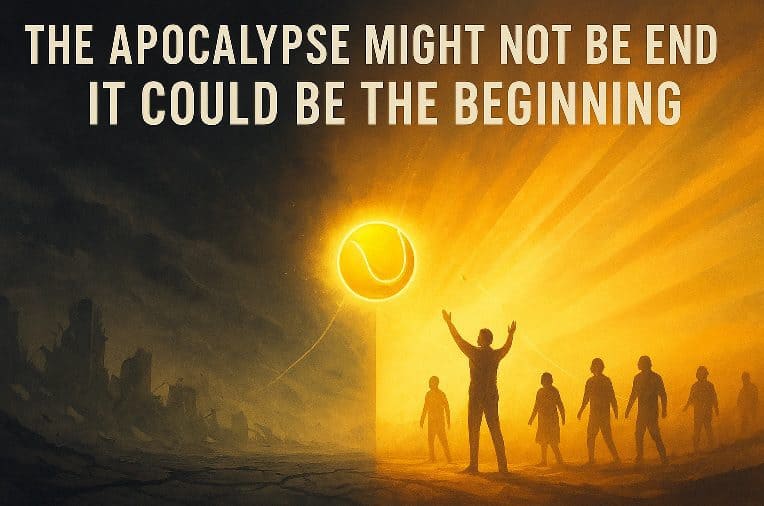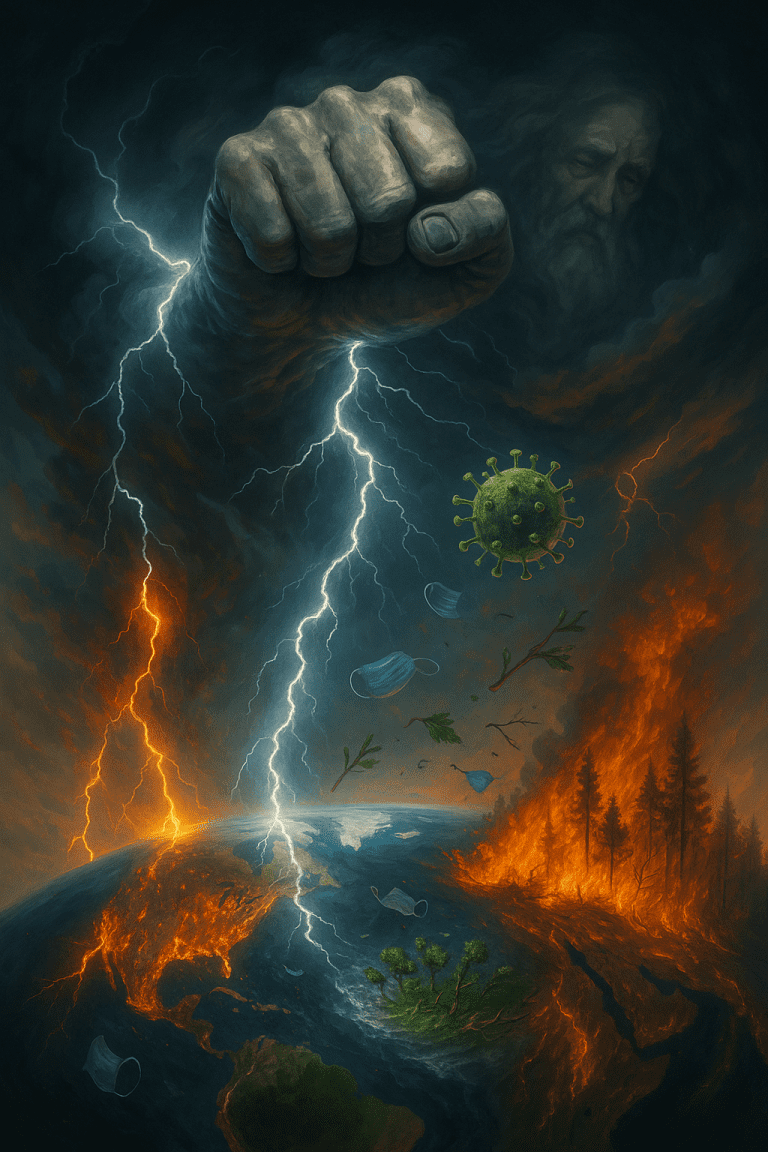Life Is a Test: From the Wilderness to Our World
If you’ve ever wondered why life feels like one challenge after another, you’re not alone. From ancient scriptures to modern faiths, one theme keeps surfacing: life as a test.
Not a test for God’s information—but a test for spiritual growth and character development.

Funny, but I came up with this same conclusion independently, and it’s at the heart of my books The El Shaddai Open and The Divine Matrix. What’s astonishing is how people across cultures—from Mormon teachings to Islamic scripture to C.S. Lewis—echo the same idea.
Let’s unpack it.
The Wilderness as a Divine Classroom
The story of the Exodus is the perfect metaphor. God could have led the Israelites straight from Egypt to the Promised Land in two weeks, but instead, they wandered 40 years in the desert. Why? Deuteronomy 8:2 explains:
“Remember how the Lord your God led you all the way in the wilderness these forty years, to humble and test you in order to know what was in your heart, whether or not you would keep his commands.”
The desert wasn’t punishment. It was preparation. Fresh out of slavery, Israel was still thinking like slaves—quick to complain, slow to trust, even longing to go back to Egypt. God didn’t “need” to test them to find out what was in their hearts. Their choices exposed it.
Over time, a new generation rose up—one that had learned faith through trials, dependence, trust, and courage. Only then were they ready to cross into Canaan. The Promised Land wasn’t just a place. It was a level of spiritual maturity.
The Test Across Religions
This idea of life as a test isn’t confined to one story or one faith. It’s a thread woven throughout the world’s great traditions:
- The Bible (Old Testament): Abraham was tested when asked to sacrifice Isaac (Genesis 22). Job’s suffering was a test of faith and endurance. The Psalms often describe God as “testing the hearts” of men.
- The Bible (New Testament): James 1:12 says, “Blessed is the one who perseveres under trial because, having stood the test, that person will receive the crown of life.” Peter calls trials “a refining fire” for spiritual growth (1 Peter 1:7).
- The Qur’an: “He who created death and life to test you [as to] which of you is best in deed” (Surah 67:2). Many verses repeat this: spiritual testing through fear, loss, and hardship are opportunities to prove trust in God.
- Hinduism (Bhagavad Gita): Life itself is a battlefield where the soul is tested through dharma, duty, discipline, and detachment from selfish desire.
- Mormonism (LDS): Life is a “probationary state”—a test of character before eternal progression.
- Mystics & Philosophers: From Rumi to John Hick, many describe suffering as “soul-making”—the process through which humans grow into what God intended.
The message is consistent: life is a proving ground. Glory comes after the test.
Our Modern Desert: The Test Has Scaled Up
Fast-forward to today. Humanity has multiplied, globalized, and interlinked. We’re richer, smarter, and more connected than ever before—but also more divided.
In a small tribe, it’s easier to make decisions. In a diverse, complex world of billions, getting people to agree on morality, policy, or even truth itself becomes exponentially harder. So the test has scaled up. And the stakes are higher.
Modern People Who Believe in the “Test Theory”
Here’s what surprised me: for a long time, I thought I’d independently stumbled onto what I call the “Test Theory” (I even labeled it that in my notes). It’s the main theme of my books The Divine Matrix and The Eshaddai Open.
After a tragic incident on September 28th—Thomas Sanford, a former Marine and Iraq War veteran rammed a Mormon church in Michigan—I dug deeper and discovered the LDS Church has almost the same belief. They explicitly describe life as a “probationary state” or test of character before eternal progression.
Isn’t that something? Many people, across cultures and centuries, observing the same pattern and drawing the same conclusion. As if God keeps whispering the same message through different channels until we finally pay attention.
Other modern thinkers echo this, too:
- C.S. Lewis wrote that pain is “God’s megaphone to rouse a deaf world.”
- John Hick (a philosopher of religion) framed suffering as “soul-making.”
- Even secular writers—from Viktor Frankl to Jordan Peterson—speak about life’s hardships as shaping character, not just crushing it.
Different languages, same idea: life is a test.
From Testing to Glory
The good news? Tests aren’t designed to crush us—they’re designed to prepare us for glory.
Just as the Israelites had to shed their slave mindset before entering the Promised Land, we too are being stretched, refined, and reshaped.
Each time you resist the urge to escalate, each time you forgive, each time you choose wisdom over ego—you’re passing a small part of the test. You’re preparing for something greater.
📚 Fun Facts About “Tests” in Religious Books
- Did you know the Bible is basically an exam paper in disguise? In many English translations, the word “test” pops up over 100 times. Add “tested,” “trial,” and “temptation,” and you’ve got enough questions to make even the best student sweat.
- The Hebrew word bachan (no, not related to Bachata dancing) shows up about 30 times in the Old Testament. It literally means to test, try, or examine. God invented quality control before ISO certifications.
- In the New Testament, the Greek word peirazo means both “to test” and “to tempt.” So yes, apparently your sweet tooth and your patience in traffic are on the same syllabus.
- The Qur’an makes it crystal clear: life itself is a test. (Surah 67:2 lays it out straight.) The exact Arabic roots appear multiple times across chapters—scholars note it’s one of the recurring themes. Basically, if you thought final exams ended in school, surprise! You’re still enrolled.
👉 Moral of the story? I’m not paranoid. Life really is a spiritual test—every holy book says so. The only difference is, you don’t always know when the next pop quiz is coming.





